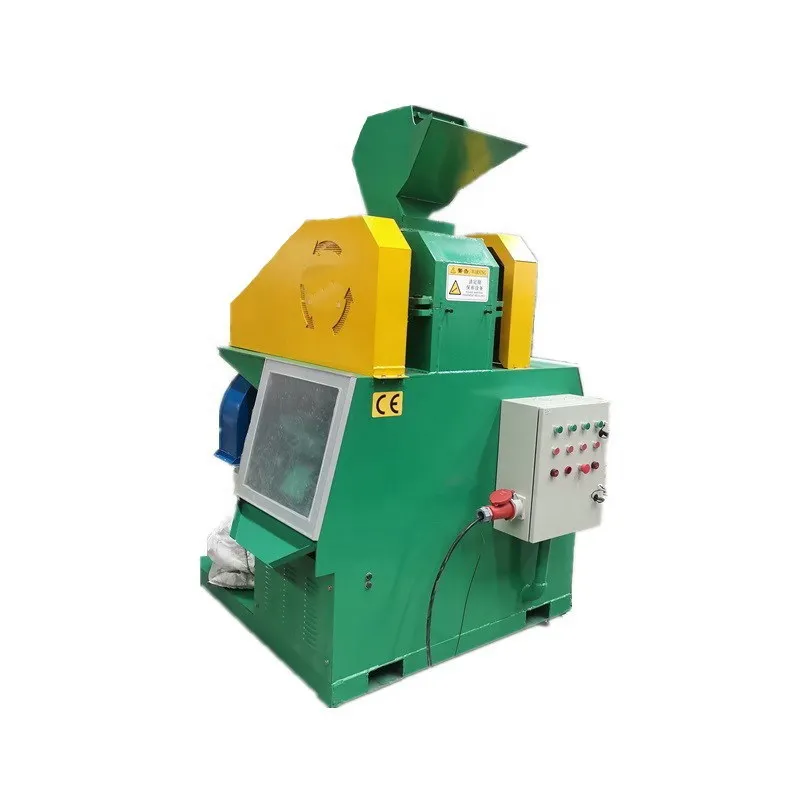

Дек . 12, 2024 10:31 Back to list
The Importance of Solid Waste Recycling Plants
In an age marked by rapid urbanization and increasing consumption, the management of solid waste has become a pressing concern for communities worldwide. As cities expand, the volume of waste generated daily continues to soar. Solid waste recycling plants play a crucial role in addressing this challenge by transforming waste materials into reusable resources, thereby promoting environmental sustainability and resource efficiency.
Solid waste refers to any non-liquid waste material, including organic waste, plastics, metals, glass, and paper. The accumulation of such waste not only poses health hazards but also leads to significant environmental degradation. Landfills, typically the go-to solution for waste disposal, are becoming increasingly unsustainable as they consume valuable land and release harmful emissions. This is where solid waste recycling plants come into play.
The Functioning of Recycling Plants
Recycling plants are facilities specially designed to process various types of solid waste. They employ advanced technologies to sort, clean, and recycle materials, diverting them from landfills and returning them to the production cycle. The process begins with the collection of waste, often segregated at the source to improve efficiency. This waste is then transported to the recycling facility, where it undergoes several stages.
Upon arrival, waste materials are sorted using a combination of manual and automated methods. Workers and machines identify different materials, separating recyclables from non-recyclables. Common recyclable materials include paper, cardboard, plastic bottles, aluminum cans, and glass jars. Once sorted, these materials are cleaned to remove contaminants that could hinder the recycling process.
After cleaning, the recyclables are processed into raw materials. For instance, plastics are shredded and melted to form pellets, while paper is pulped to create new sheets. These raw materials can then be sold to manufacturers, who can use them in the production of new products, thereby closing the loop on the recycling process.
Environmental and Economic Benefits

The environmental benefits of solid waste recycling plants are manifold. By diverting waste from landfills, these facilities significantly reduce the volume of waste that would otherwise contribute to air and water pollution. Moreover, recycling conserves natural resources by reducing the need for virgin materials. It requires less energy to produce products from recycled materials compared to using raw materials, leading to lower greenhouse gas emissions.
Economically, recycling plants contribute to job creation within communities. They provide employment opportunities in various roles, from sorting and processing to administration and logistics. Additionally, recycling can stimulate local economies by generating revenue from the sale of recycled materials and reducing waste management costs for municipalities.
Challenges and Future Directions
Despite their advantages, solid waste recycling plants face several challenges. One of the primary issues is contamination. Non-recyclable materials mixed in with recyclables can lead to increased processing costs and lower quality of recycled products. Public education is crucial in ensuring proper waste segregation and reducing contamination.
Another challenge is market demand for recycled materials. Fluctuating prices for recycled goods can affect the financial viability of recycling plants. Therefore, it is essential for governments and industries to support the development of markets for recycled products to ensure the sustainability of recycling endeavors.
Looking forward, the future of solid waste recycling plants lies in innovation and technology. Advances in sorting technologies, like artificial intelligence and machine learning, can enhance the efficiency and effectiveness of recycling processes. Moreover, implementing circular economy principles can further drive the reduction of waste and promote sustainable resource management.
In conclusion, solid waste recycling plants are vital to addressing the challenges posed by increasing waste generation. By efficiently processing and recycling materials, these facilities play a crucial role in promoting environmental sustainability, conserving resources, and boosting local economies. Through collective efforts in public education, technological advancement, and market development, we can enhance the effectiveness of recycling initiatives and work towards a more sustainable future.
Latest news
Troubleshooting Common Eddy Separator Problems
NewsJul.04,2025
The Role of Metal Recycling Plants in Circular Economy
NewsJul.04,2025
The Impact of Recycling Line Pickers on Waste Management Costs
NewsJul.04,2025
Safety Features Every Metal Shredder Should Have
NewsJul.04,2025
How Industrial Shredders Improve Waste Management Systems
NewsJul.04,2025
How Cable Granulators Contribute to Sustainable Recycling
NewsJul.04,2025